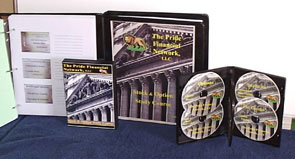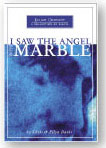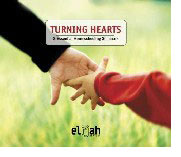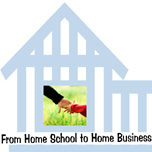Creating Your Own Scope and Sequence
Read past issues of the
e-journal HERE>> Sign up to receive our newsletter HERE>>>>
by Ellyn Davis
This is the final article in a series about developing an individualized course of study for each child based on their real needs and on your family's unique passions and giftings. The last newsletter focused on developing an IEP for each child to help guide you through the home school years. And the newsletter before it suggested creating a chart of the different areas you want to develop in your children. You can read that newsletter by clicking HERE.
Now it's time to get specific about the relationships, skills, and information you want each child to be adept at before they leave their home schooling years with you. Here's how you do it in three easy steps.
Step 1: Determine your educational philosophy
Whether you're aware of it or not, you have an educational philosophy--an idea of what comprises a "good" education. And it's that idea that you bring to the table when you start home schooling your children. It's also that idea that causes you to be attracted to certain types of teaching materials.
So you might want to ask yourself the following questions:
1. If I had to tell what I thought was most important for my children to spend their home school years on, would it be.... (Rank from 1 (most important) to 4 (least important)
____(a) Having my children learn a core body of knowledge that is universally recognized as a thorough education so they can be accepted to top colleges and have professional careers.
____(b) Having my children become acquainted with the great minds throughout history and the worldviews that influence history so that they become thinkers, leaders, and problem-solvers.
____(c) Having my children learn information and skills that are of practical use to them and prepare them for real-world living and family life.
____(d) Having my children discover their meaning and purpose in life and be equipped with the knowledge and skills to fulfil their God-given destinies.
2. What
was I taught that I really needed to know? (Take out a piece of paper and make three columns. Label the columns "Academics," "Practical Skills," and "Relationships." List as many things in each column that you were taught that in the course of your life you have found that you really needed to know.)
3. What do I wish I had been taught that I've found out that I really needed to know? (Do this exercise in the same way as #2, except your list is going to be of those things you weren't taught that you wish you had been.)
4. What was I taught that I didn't need to know and don't ever foresee needing to know and I've never met anyone who needed to know it? (Do this exercise in the same way as #2, except your list is going to be of those things that you found were a waste of time for you and everyone else you know to learn.)
Step 2: Do a little more research
Our recommendation is that you do the following five things:
1. First, take a long, hard look at the presuppositions and objectives of institutional education by reading books such as John Gatto's and John Holt's. (See below.) Why? Because, as Pogo said, “We have seen the enemy and he is us!” We are so used to thinking of school as children sitting in desks, listening to lectures, and working on pre-packaged curriculum for six hours a day, 180 days a year, over a period of twelve years, that we have a hard time imagining any other way.
Also, many products for home educators are merely repackaged versions of public school materials, and we need to be able to recognize them as such. Otherwise, we unwittingly find ourselves adopting the same scope and sequence, the same methods, and the same standardized curriculum that was derived from the public school’s presuppositions and that seeks to achieve its objectives. We will worry if our children aren’t reading by the time they are six or doing fractions by nine. We will guide our children toward popular careers. We will feel unqualified to teach without an education degree.
In short, until we understand the misconceptions behind public schooling, we will think that some form of traditional institutionalized education is true education.
For most of us, our public school upbringing has steeped us in ideas about education that have to be discarded if we want to effectively educate our own children at home. As John Gatto says, “School was a lie from the beginning, and it continues to be a lie.” If we know no better, we may buy into the lie and perpetuate its thinking.
2. Second, examine the viewpoints and teaching approaches that currently influence home education. You can read about these in past issues of this e-journal and you can read books that more thoroughly explain the viewpoints and approaches. If there is a particular emphasis or teaching approach that appeals to you, take the time to learn about it. The fact that it appeals to you may be the Lord’s gentle nudge in that direction.
3. Third, try and get in touch with your family’s convictions and values and the real needs of your children (see ejournal on Learning Styles). Once you have an idea of what you really want for your children, you will be better prepared to chart your home schooling course.
4. Fourth, buy several home school resource books that give an overview of home schooling. These books will overwhelm you if you don’t already have an idea of where you want to go with home schooling, so don’t dig into them until you have some sense of your family’s convictions and the real needs of your children. Start with books such as Homeschooling the Early Years, ...the Middle Years, and ...the Teen Years. They provide general information about teaching each age group.
From there begin looking at curriculum guides like Mary Pride’s or Cathy Duffey’s. Educate yourself about “what’s out there.”
5. Create your own Scope and Sequence.
Step 3: Create your own Scope and Sequence
If you've never heard the term "Scope and Sequence," it is simply a list of what things should be learned in which order in a typical course of study from first through twelfth grade.
You can create your own Scope and Sequence by building a course of study for your children around all the things you realize that a person really needs to know, taking into account the educational philosophy that you tend to favor.
How do you do this?
First, take out a fresh piece of paper and make three columns. Divide each column into four rows. You should now have a grid on the page that has 12 compartments, one for each grade 1 through 12. Label the compartments 1 through 12. (Or, if you object to assigning grade levels to your children, label the compartments age 6 through age 17.)
Look over the lists you wrote for questions #2 and #3. Roughly place those "need to know" academics, practical skills, and relational skills on your 1st through 12th grade (or age 6 through age 17) grid, according to how mature you think your child needs to be before learning those academics or skills.
Now look back at your answers to question #1.
If (a) was your top choice, your educational philosophy leans toward essentialism. You probably need to consider traditional teaching materials such as Bob Jones or ABeka which have a pre-defined Scope and Sequence. Then you can supplement with materials that reflect your second, third, and fourth priorities and things that were on your lists for questions #2 and #3. (For an explanation of the Traditional Approach, GO HERE .)
If (b) was your first choice, you lean toward perennialism. The great books/Charlotte Mason-type approach is best suited as your primary home schooling course of study. This approach can be easily adapted so that it includes your lists in #2 and #3. (For an explanation of the Living Books/Charlotte Mason Approach, GO HERE .)
If (c) was your first choice, then you tend to be a progressivist. A more experiential, practical, hands-on approach to learning is the best fit for your family. This approach can be easily adapted so that it includes your lists in #2 and #3.
If (d) was your first choice, you lean toward existentialism as an educational philosophy. An "identity-directed" approach will work best for your children, with tailored courses of study that reflect each child's interests and giftings. You can also cover what was on your lists in #2 and #3. (See our article on "Identity-Directed Home Schooling.")
Now you are ready to buy teaching materials that support the relationships, skills, and information you feel are important for each child to acquire.. You understand the philosophies and educational approaches that different home schooling materials are coming from, you know your children's learning styles, you know your own educational philosophy, and you know what academics, practical skills, and relational skills are important for you to cover with your child in each school year. You also have a feel for the different products that are available.
Prepare to several hundred dollars and maybe a few months getting clear about what you want to do. If it makes you feel any better about the amount of time and money you have to spend getting ready to teach your children, think of it this way: The average public school teacher has spent four to six years and twenty to fifty thousand dollars learning how to teach your children. Why shouldn’t you spend some time and money preparing yourself?
However, and this is a BIG however, don’t think that you have to have everything figured out before you begin. You can adapt as you go. So loosen up and accept the fact that some of what you try will be a total waste of time, energy and money. This is all a part of learning what works for you and for your children. Consider it payment of your tuition in Home Educating U.
So, just relax and have fun with home schooling!
General Resources
Teaching Your Children Responsibility. As a parent, you know how much less stressful your life would be if you could count on your children to be more responsible-for their toys, their homework, their household chores, and their choice of friends. You know you want your children to grow up to be responsible adults. In Teaching Your Children Responsibility, bestselling authors Linda and Richard Eyre identify twelve simple kinds of responsibility-from responsibility for things to responsibility for actions, from responsibility for choices to responsibility for younger siblings-that children can relate to. They provide a simple, practical program-with enjoyable exercises, games, and activities-that you can use to teach your children these important concepts.
Ready for Responsibility. We pray that our children will succeed in a career that fits their talents and interests, that they will find a good marriage partner, that they will be happy, well-adjusted adults. But in what ways can our parenting help them reach these goals? What can we do now to help prepare our children for life as adults? In this encouraging and insightful book, Dr. Bob Barnes offers practical suggestions and specific advice on how to teach children the skills they will need to be good employees and marriage partners. Using stories and personal anecdotes, Barnes talks about such issues as dating, allowances, manners, communication skills, responsibilities, authority, sex education, and more. But not only does he give advice, Dr. Barnes also helps parents apply the insights and create their own specific plan for parenting.
What is a Family.
This is one of the best books we have ever read. We re-read it periodically, and each time are brought to tears—tears of longing because it so perfectly expresses what we want our family to be like. Edith Schaeffer shares how the family is meant to be the birthplace of creativity: a center for the formation of relationships: a museum of wonderful memories that provide a hedge of protection around our children; an educational control; a perpetual relay of truth; and more.
For the Family’s Sake. Edith’s daughter Susan Schaeffer Macaulay takes up where her mother left off. By showing the power a godly home can have in a child’s life, she challenges every one of us to treasure the precious time we have at home with our children.
For the Children’s Sake.
Susan Schaeffer Macaulay continues to follow in her mother Edith Schaeffer’s footsteps, and in this book describes how to develop relationships filled with grace, beauty, and love. She views education as “the diet that opens doors for each child to build a relationship with God, other persons, and the universe.”
How to Really Love Your Child. In this extrordinary book, Dr Ross Campbell helps parents manifest love toward their children in all situations of child-rearing through the teen years. Many parents do not know how to express affection in ways that make a chid feel loved. This book details practical demonstrations of that are meaningful to children.
How to Really Love Your Teenager is specifically addressed to parents of teens. Dr. Ross Campbell believes that parents experience their greatest difficulties at this stage because they are unable to relate to the moodiness and self-identity issues that teens go through. So parents often harbor misconceptions and face disappointment in their relationships with their teens. This book offers ideas to help you communicate unconditional love, handle teenage anger . . . as well as your own, deal with adolescent depression and help your teenager grow spiritually and intellectually.
Relational Skills Resources
The Five Love Languages. Unhappiness in a relationship often has a root cause: we speak different love languages. Each of us has a "love language" of certain actions and words that when others use them it makes us feel loved. Do you feel most loved when those you love spend quality time with you, give you gifts, speak words of affirmation, perform acts of service, or when they touch you affectionately? This is a very thought-provoking and helpful book because it has given us greater understanding of how to show we care in a way that is most meaningful to the other person.
The Five Love Languages of Children and The Five Love Languages of Teenagers focus on finding the form of love most meaningful to each of your children and how to express love in ways that they can truly appreciate and receive it.
The Blessing. In the Bible, the parents' blessing was especially powerful, often defining the course of a child's life. This book discusses how a parent's words can shape identity for good or evil, and how what we speak over our children can hlep them become who God means them to be. It also shares the heartache a lack of parental blessing can bring, and how we can confer a blessing upon our children.
Emotional Intelligence and How to Raise a Child With a High EQ are the seminal works on understanding emotional intelligence and how to develop it in your children (and yourself).
Aptitude/Interest/Gifting Skills Resources
Discover Your Children’s Gifts by Don & Katie Fortune.
Part of training our children is discovering who God created them to be and the “works” He created them to do. This book looks at the spiritual gifts latent in each child and explains how parents can recognize and best develop these gifts for useful service. Based on Proverbs 22:6 and Romans 12: 6 - 8, it discusses how gifting affects communication, career possibilities, and more.
Discover Your Child’s Learning Style by Mariaemma Willis and Victoria Kindle-Hodson.
One mother wrote, “This is the most important book I have read in six years of homeschooling.” Does your child learn best at a certain time of day? Does background music increase or decrease reading comprehension? Does he or she study better alone or with others? There are more aspects to a student's learning style than the simple modes of visual, auditory, or kinesthetic. A “learning style profile” takes into account a child's talents, interests, preferred learning environment, and disposition, as well as the three familiar modes. By using do-it-yourself work-sheets, the guide helps you develop your child's learning style profile.
The New Birth Order Book by Kevin Lehman.
Is your child the firstborn, a middle child, or the “baby?” Birth order and gender have a powerful effect on personality and aptitude. This book discusses how we are shaped by our place in the family.
Critical Thinking Skills Resources
Building Thinking Skills are the best critical thinking products available. In workbook format, they contain exercises in four thinking skill categories: similarities and differences, sequences, classification, and analogy. Each book has over 250 pages and is meant to be used for two or more grade levels. Pages are reproducible, or the student may write in the book. Choose Building Thinking Skills, Book 1 for grades 2 - 4, Building Thinking Skills, Book 2 for grades 4 - 6. At the Jr/Sr high level there are two books: Building Thinking Skills Book 3 Verbal and Building Thinking Skills Book 3 Figural.
The following teacher’s manuals are highly recommended because you want to be able to refer to the answers quickly and as the lessons get more and more difficult you won't want to take the time to solve the problems yourself:
Building Thinking Skills Book 2 Lesson Plans and Teacher's Manual
Building Thinking Skills Book 3 Figural Lesson Plans and Teacher's Manual
Building Thinking Skills Book 3 Verbal Lesson Plans and Teacher's Manual
Critical Thinking is a course in practical logic for high school or advanced middle school. Through studying newspapers, speeches, and advertisements it covers basic concepts of logic, common errors in reasoning and how to discern them, and applying logic to everyday problems. These are the best of the best of the critical thinking products out there. Critical Thinking Book 1 and Critical Thinking Book 1Teacher’s Manual or Critical Thinking Book 2 and Critical Thinking Book 2 Teacher’s Manual. It's best to start with Book 1 and then move into Book 2.
Endangered Minds by Jane Healy. This book clearly explains how certain ways of thinking actually prepare children for learning or for failure depending on the neural pathways they have developed in early childhood. A significant book with many insights about how we can give our children the thinking skills necessary to learn and to face the challenges of everyday life.
Resources for rethinking education
(from March 14 , 2006 ejournal)
Books by John Gatto. These books will change the way you think about education. Gatto was a public school teacher for decades and New York's Teacher of the Year, so he has first-hand experience with the effects of public schooling. Not only do his books discuss the major issues about what schooling does to our children, he offers insights into what a true education entails and reflects on our society as a whole and the distorted thinking that leads us to subject our children to an influence that robs them of their creativity and enthusiasm for learning. Gatto's books are "MUST READS."
Dumbing Us Down
A Different Kind of Teacher
Books by John Holt. Holt's books are wonderfully thought-provoking and give you a real appreciation for the natural learning ability of your children. Read all of these! How Children Learn, Learning All the Time, and Teach Your Own .
Also highly recommended: Guerrilla Learning: How to Give Your Kids a Real Education With or Without School
Endangered Minds by Jane Healy. Subtitled “Why Children Don't Think and What We Can Do About It,” this is truly a
significant book. The book's premise is that today's children, bombarded by a fast-paced
media culture and with very little interaction with thinking adults, develop different “habits of mind” than children of the past and are therefore unable to tackle the skills involved in learning. Healy clearly explains why our modern lifestyles sabotage
the ability to learn and tells us what to do about it. In the companion book, Your Child's Growing Mind Healy discusses how thinking and learning abilities develop for skills like reading, writing, spelling, proper use of grammar, etc. and what parents can do to create the “mind pathways” that enhance these thinking and learning abilities. These books are "must haves."
Resources for choosing teaching materials
(from April 06, 2006 ejournal)
Mary Pride's Complete Guide to Getting Started in Homeschooling. The title can be deceiving, because the book isn't just for those getting started, it's also very helpful to veteran home schoolers who want to re-evaluate what they are doing and the resources that are available to them.
Veteran home educators will dive into a vast amounts of up-to-date information with sections on Field Trips, Conferences, Retreats & Homeschool Days for the Whole Family, and Worldview & Leadership Training for Teens. There's also information on how to find everything from contests, to how to write a winning college application essay.
If there were one "top expert" in homeschooling, I would say Mary Pride is it. With her numerous books, Practical Homeschooling Magazine, and website, Mary knows her stuff.
Home Learning Year by Year: How to Design a Homeschool Curriculum from Preschool Through High School by Rebecca Rupp. This book does not come from a Christian orientation, but is one of the few books I know that gives you a checklist of what the traditional pre-K through 12th-grade curriculum expects a child to learn year by year and then tells you how to accomplish the same level of learning at home. Home Learning Year by Year also gives guidelines for the importance of each topic, pointing out which knowledge is essential and which is best for more expansive study based on your child's personal interests.
Life Skills for Kids by Christine Field is a
guide to equipping your children with the life
skills they will need as adults: people/home
life skills, time/space organization skills,
money management skills, healthy lifestyle
skills, spiritual habits, decision making skills,
creative skills, and celebration skills.
Christine is a home schooling mother herself,
and the book is written in such a way that it
may be used as a reference point and checklist of desired skills
and knowledge to be mastered.
Homeschooling the Early Years
Homeschooling the Middle Years
Homeschooling the Teen Years
Each of these books is a guide to successfully
homeschooling the age group it covers. Starting with
what makes the age group tick, chapters cover the
important aspects of learning, practical ways to approach
each subject area, and the many paths to success.
What Your Kindergartner Needs to Know
What Your First Grader Needs to Know
What Your Second Grader Needs to Know
What Your Third Grader Needs to Know
What Your Fourth Grader Needs to Know
What Your Fifth Grader Needs to Know
What Your Sixth Grader Needs to Know
This series of books covers what a child at each grade level should be learning in every subject. The books are great to have around to help you design your own curriculum and make sure you aren't leaving any "gaps." History, language arts, science, and several other subjects are covered in enough detail that the book could become your primary textbook for those subjects, but math is summarized, so further teaching materials may be needed there. As you develop your own "Home School Reference Center" of books you can refer to over and over, these need to have their own place there.

If you haven't had a chance yet to tell me what home schooling means to you, please GO HERE NOW. It will just take you a few minutes and your input is invaluable to me.
Thanks!
WHAT HOME SCHOOLING
MEANS TO ME SURVEY

|







